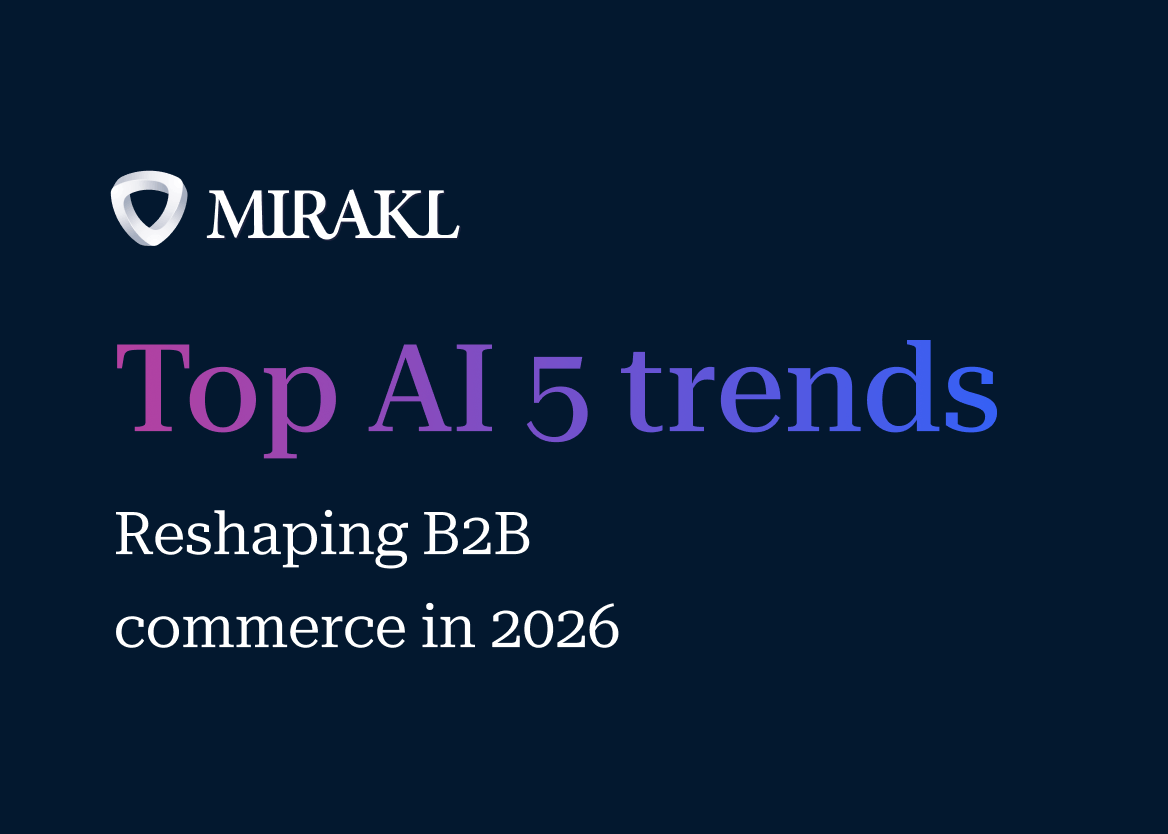Gaining Control of Value Chains, and the Customer Experience, in the Age of Amazon

In 2018, B2B digital commerce surpassed $1 trillion in the U.S. Forrester Research predicts that it will grow to $1.84 trillion by 2023, driven by B2B buyers who are demanding the same ease of use and price transparency that they experience with personal purchases on marketplaces like Amazon.
The manufacturers and distributors who anticipate this opportunity are leveraging marketplace solutions to offer a high-quality customer experience and to better position themselves for this new “experience economy.”In B2B Value Chains: Who Will Own the Experience Economy?, WBR Insights and the B2B Online 2019 event series partnered with Mirakl and SAP to survey 240 B2B executives and digital practitioners about the market opportunity of B2B digital commerce. Their findings show how B2B organizations can use marketplace solutions to improve customer experience within their ecosystems and gain critical data on demand.
To lead in digital commerce, companies need to move quickly
Loading...
In the new experience economy, relationships between B2B buyers and manufacturers are more direct. Most companies report that, currently, 41-80% of digital commerce buyers purchase directly from manufacturers.
There’s little doubt that buyer behaviors are shifting, and quickly. 85% of respondents claim that most, if not all, digital commerce buyers will buy directly from manufacturers in the next two years – representing a massive market opportunity for the companies that are prepared to invest in those ecosystems.
Distributors are feeling the pressure, too, and are moving to adopt more roles in direct marketing and digital commerce sales. For both manufacturers and distributors, investing in digital commerce is crucial to capture a larger share of their respective markets.
Improving the customer experience, and accessing valuable data, by going direct-to-consumer
Loading...
Manufacturers across industries feel the pressure to create better customer experiences – but without direct access to customers, they’re lacking the data they need to make it happen. In the experience economy, manufacturers who rely exclusively on their channel partners to sell on their behalf miss the opportunity to take control of the customer relationship.
Selling through channel partners restricts manufacturer access to customers and the critical data that they provide. 76% of manufacturers cited a failure to build direct customer relationships as a pain point when selling through channel partners, and 73% pointed to the failure to gain end customer demand data as an additional challenge.
Even with the risk of channel conflict, the need to gain access to customer data – and the ability to improve conversions and gain control over customer relationships – is driving manufacturers to investigate direct-to-consumer opportunities.50% report that they plan to launch marketplaces and invite channel partners to be sellers. 43% plan to sell directly on other marketplaces, and 40% will move to sell directly to end consumers.
Are organizations prepared to expand their commerce ecosystems?
Digital commerce marketplaces are a means for organizations to engage wider audiences and consolidate their sales environments into a single digital ecosystem – and 66% of companies are planning to build a larger ecosystem of third-party partners and products to deliver a better experience to their customers.
But not every company is prepared to take advantage of the marketplace opportunity. 31% overall considered their digital commerce maturity ‘below average’ or ‘poor’ when compared to their competitors – representing an uphill battle to build a platform that must offer a simple, efficient digital commerce customer journey in order to be successful.
Digital commerce marketplaces offer organizations across diverse industries a means to engage wider audiences and consolidate their sales environments into a single digital ecosystem – but building one can be a costly endeavor full of risk. Hundreds of organizations have opted to buy, rather than build, their marketplace solution to deploy rapidly and eliminate the cost and risk of a DIY solution.
A Total Economic Impact analysis by Forrester Consulting found that implementing a Mirakl marketplace solution increases the quality of customer experience and arms sellers with the customer data they need most on sellers, categories, customer experience, and product feedback. A Mirakl marketplace can deliver 162% ROI, and up to $412 million in revenue, over just three years. Organizations like Toyota Material Handling, Siemens, and HP Enterprise have been able to launch a complete marketplace in just four months with the help of Mirakl’s 60+ marketplace experts.
Download the complete report to hear from industry experts
If you’re tasked with guiding your organization towards success in the experience economy, download the complete report. You’ll get a deep dive on how B2B executives & practitioners across 8 industries are positioning their businesses in the era of the experience economy – and where the B2B eCommerce marketplace fits in.



